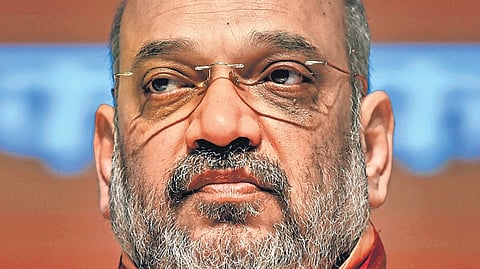

NEW DELHI: Union Home Minister Amit Shah will hold a high-level meeting this week with Union Minister of Jal Shakti CR Patil and Cabinet colleagues from the power, irrigation, and renewable energy departments to discuss strategies for accelerating hydropower projects that have stalled or slowed down due to Pakistan’s objections.
This will be Shah’s third meeting with Patil following the suspension of the Indus Waters Treaty (IWT). Under the IWT, India had to notify Pakistan at least six months before starting any projects. However, since the treaty has been suspended, India is not obligated to seek consent or opinions from riparian states.
The context for this meeting stems from the recent terrorist attack in Pahalgam, which resulted in the death of 26 Indians. In response, India decided to suspend the 65-year-old IWT due to Pakistan’s ongoing support for terrorism.
According to sources close to the development, Jammu and Kashmir Chief Minister Omar Abdullah is expected to attend the meeting. In reaction to the suspension, Abdullah stated that the IWT is an unjust document for Jammu and Kashmir. He emphasised that while water sharing between the two nations is a matter of national interest, it has disadvantaged Jammu and Kashmir.
At least six hydro projects and one navigation project have been pending for the last two decades. These include Sawalkot (1850 MW) on the Chenab River, proposed Kirthai 1 & 2 (1320 MW) projects in the Ramban and Udhampur districts, Pakal Dul (1000 MW), Ratle (850 MW), Bursar (800 MW), and Kiru (624 MW).
The navigation project, Tulbul, is intended to connect year-round navigation on the Jhelum River, particularly between Anantnag, Srinagar and Baramulla from the mouth of the Wular Lake.
In the upcoming meeting, India may decide to proceed with technical and financial feasibility studies for ongoing projects such as Kishanganga, Baglihar, and Lower Kalnai to increase their water storage capacity. The government may also approve some storage projects to meet renewable energy demands.
After the partition of India, a dispute over the Indus waters emerged between the two countries. The World Bank mediated the dispute in 1954, and it culminated in the treaty, which was signed on September 19, 1960.